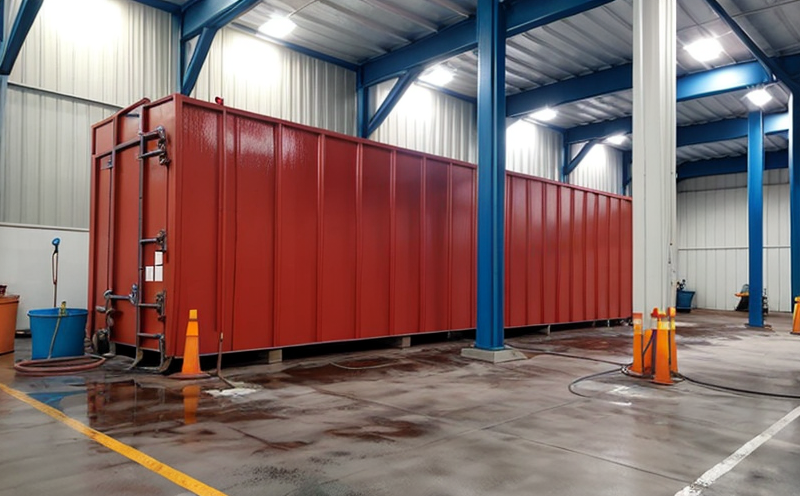ASTM D2794 Impact Resistance Testing of Coatings Precision and Accuracy Evaluation Test
The ASTM D2794 impact resistance test is a critical method used to evaluate the durability and reliability of coatings under dynamic stress conditions. This test simulates real-world scenarios where coatings may experience sudden impacts, such as during manufacturing or in-service operations. The precision and accuracy of this test are paramount for ensuring that coatings meet industry standards and perform reliably in harsh environments.
The ASTM D2794 protocol involves dropping a specified weight from a set height onto the surface of the coating. This impact generates an impulse force that can be used to assess the coating's ability to withstand such forces without failure or significant damage. The test is particularly useful for industrial coatings, paints, and protective layers in sectors like automotive manufacturing, aerospace, and infrastructure.
The methodology requires strict adherence to standard procedures to ensure consistent results. Specimens are prepared according to ASTM D2794 guidelines, ensuring that the coating thickness and substrate type are appropriate for the test. The apparatus used includes a drop hammer or impact device capable of delivering the specified force at the required height.
The precision and accuracy of this test are evaluated by comparing results across multiple replicates and under controlled conditions. Variations in temperature, humidity, and specimen preparation can significantly affect the outcome. Therefore, it is essential to maintain strict control over these variables to ensure reliable data.
For quality managers and compliance officers, ASTM D2794 provides a robust framework for ensuring that coatings meet stringent performance criteria. R&D engineers benefit from this test by refining their formulations to enhance impact resistance. Procurement teams can use the results of this test to select suppliers who deliver high-quality materials.
The ASTM D2794 protocol is widely recognized in international standards such as ISO 16035 and EN 1845, further validating its importance in the industry. This method ensures that coatings are not only effective but also reliable under dynamic stress conditions.
Scope and Methodology
The ASTM D2794 impact resistance test is designed to evaluate the ability of industrial coatings to withstand sudden impacts. The scope of this test includes various types of coatings used in manufacturing, processing, and protective applications. It covers a range of substrates such as metals, plastics, and composites.
- Coatings for automotive bodywork
- Protective layers on steel structures
- Pipeline coating systems
- Aerospace surface protection
The methodology involves preparing a standardized specimen according to ASTM D2794 guidelines. The specimen is then subjected to an impact from a specified weight dropped from a set height. The impact force is measured, and the resulting damage or failure of the coating is recorded.
Key parameters include the drop hammer specifications, the height from which the hammer is released, and the type of substrate used for the test. Replication of these conditions ensures consistent results across multiple tests. The precision and accuracy of the test are evaluated by comparing results from different trials under controlled environmental conditions.
Industry Applications
- Aerospace Manufacturing: Ensuring that protective coatings on aircraft structures can withstand impacts during takeoff and landing.
- Automotive Production: Evaluating the durability of automotive body coatings in harsh environmental conditions.
- Pipeline Construction: Assessing the integrity of pipeline coating systems against external forces and abrasion.
- Steel Fabrication: Testing protective layers on steel structures to ensure they can withstand structural impacts during installation.
The ASTM D2794 impact resistance test is essential for quality assurance in these industries. By ensuring that coatings meet the required standards, manufacturers can produce products with enhanced durability and reliability.
Environmental and Sustainability Contributions
The ASTM D2794 impact resistance test plays a crucial role in promoting sustainability by ensuring that industrial coatings are robust enough to withstand environmental stresses. This contributes to longer product lifecycles, reducing the need for frequent replacements and maintenance.
By enhancing the durability of coatings, this test supports sustainable manufacturing practices, which can lead to reduced resource consumption and lower carbon footprints. For example, in aerospace, ensuring that protective coatings are resilient helps minimize weight and material usage, contributing to more efficient aircraft operations.





